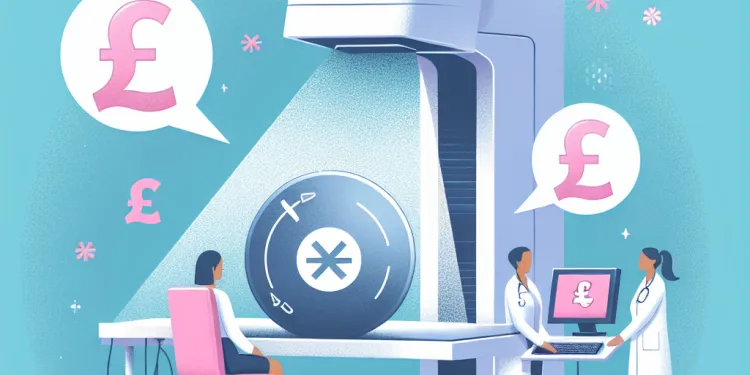
Find Help
More Items From Ergsy search
-
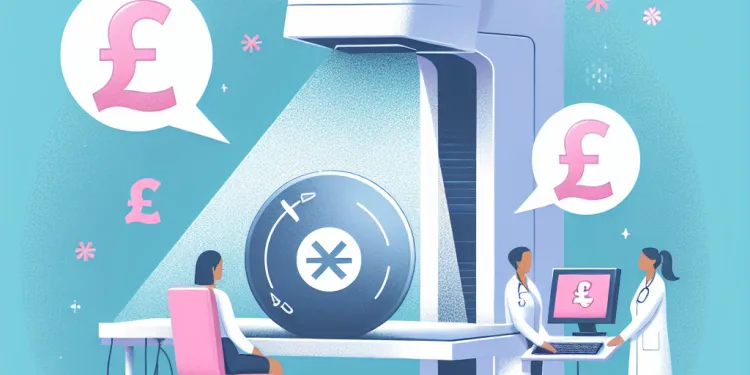
Are there any risks associated with mammograms?
Relevance: 100%
-

Mammograms
Relevance: 88%
-
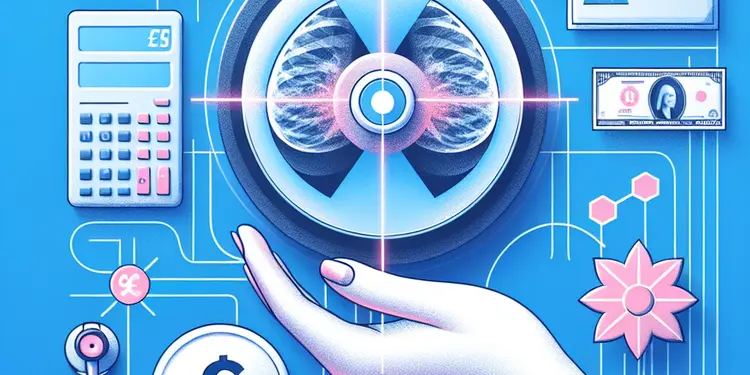
What is a mammogram?
Relevance: 84%
-

What is a mammogram?
Relevance: 83%
-

How reliable are mammograms?
Relevance: 80%
-
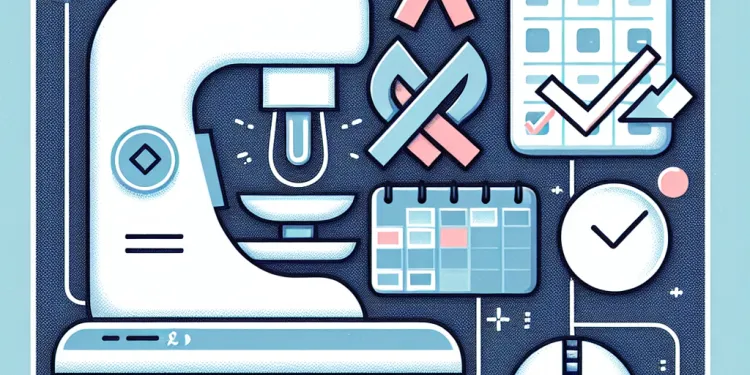
How do I book a mammogram?
Relevance: 80%
-

Is a mammogram painful?
Relevance: 78%
-
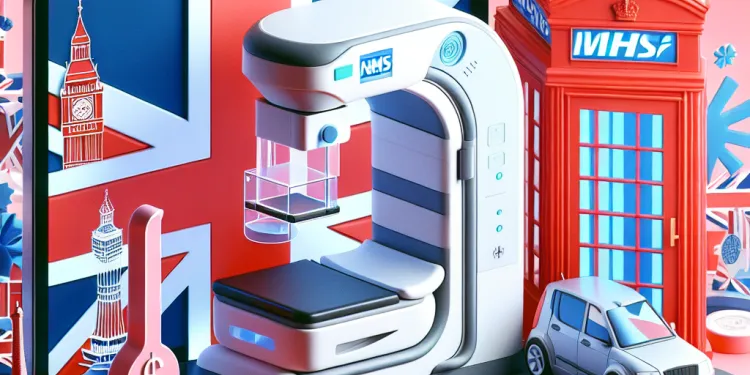
Are mammograms free on the NHS?
Relevance: 76%
-

How do I prepare for a mammogram?
Relevance: 76%
-
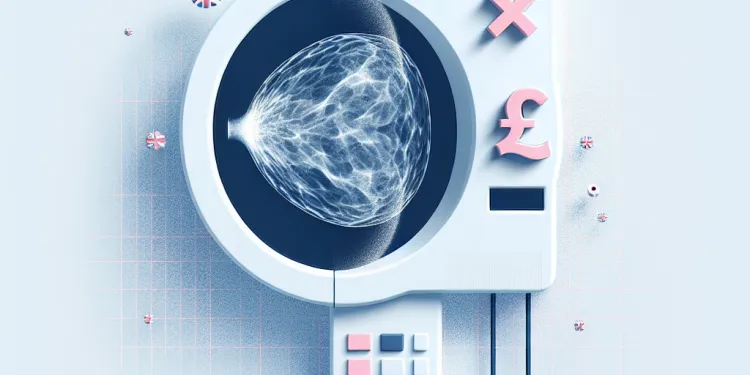
What happens during a mammogram?
Relevance: 76%
-

What are the benefits of regular mammograms?
Relevance: 75%
-

Can men have mammograms?
Relevance: 74%
-

How often should I get a mammogram?
Relevance: 74%
-

What if my mammogram results are abnormal?
Relevance: 73%
-

At what age should I start having mammograms?
Relevance: 72%
-
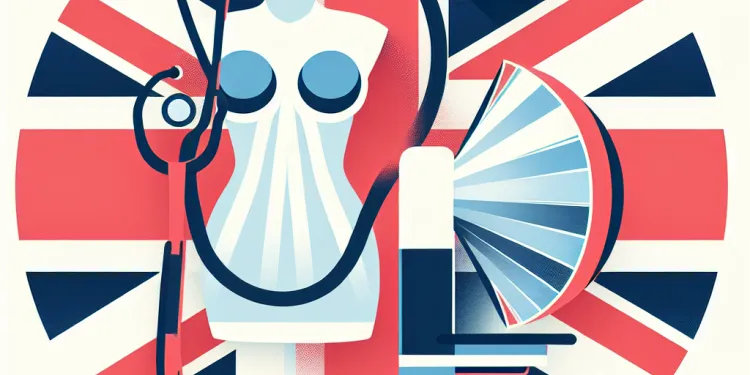
Can I have a mammogram if I have breast implants?
Relevance: 72%
-

NHS breast cancer screening
Relevance: 40%
-
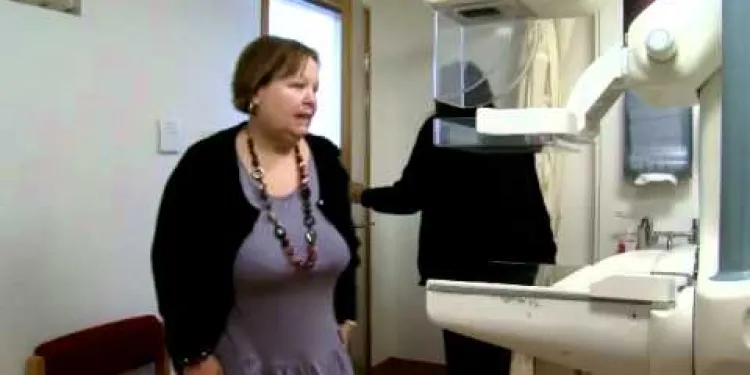
Tower Hamlets breast screening programme
Relevance: 35%
-
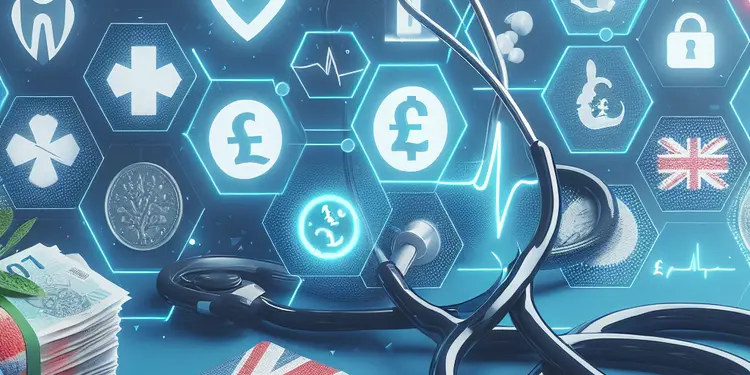
Are there any risk factors that increase the need for cancer screening?
Relevance: 33%
-

Other Things You Need to Know About Breast Screening
Relevance: 33%
-
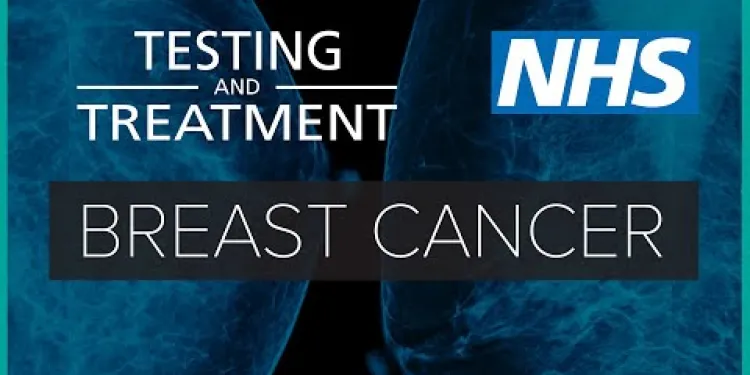
Breast cancer: testing and treatment | NHS
Relevance: 32%
-

Are there risks associated with IVF?
Relevance: 31%
-

How long does a mammogram take?
Relevance: 30%
-

Who is at higher risk for thrombosis?
Relevance: 29%
-

What are the risk factors for thrombosis?
Relevance: 29%
-

Who is at risk for testicular cancer?
Relevance: 29%
-

Who is at risk for developing BPH?
Relevance: 29%
-

Who is at risk of developing shingles?
Relevance: 29%
-
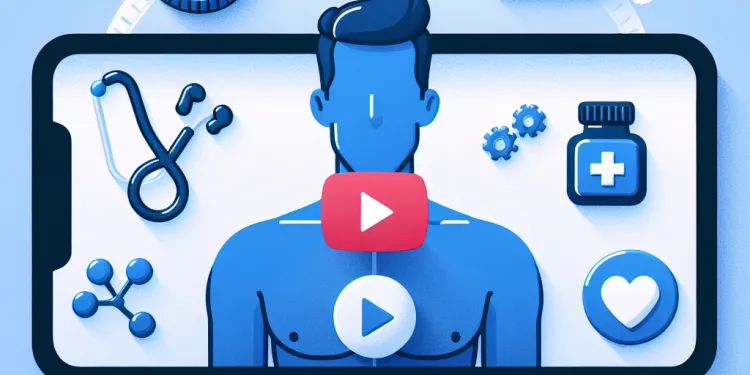
Am I more at risk of prostate cancer?
Relevance: 29%
-

Who is at risk of developing SAD?
Relevance: 29%
-

Who is at risk for flesh-eating disease?
Relevance: 29%
-

Are there any risks associated with facelifts?
Relevance: 29%
-

Who is at risk of developing eczema?
Relevance: 29%
-

What are the risks associated with a C-section?
Relevance: 28%
-

What are the risks associated with cryptocurrencies?
Relevance: 28%
-

Is there any risk of hypoglycemia with Mounjaro?
Relevance: 28%
-

Are there risks associated with blood transfusions?
Relevance: 28%
-

What is the risk of miscarriage? | NHS
Relevance: 28%
-

Health Screenings You Should Know About
Relevance: 28%
-

Are adults in the UK at risk from measles?
Relevance: 28%
Introduction
Mammograms are vital screening tools for the early detection of breast cancer. They involve taking X-ray images of the breast to identify any abnormalities. While they play a crucial role in health screening, it is important to be aware of certain risks associated with mammograms.
Exposure to Radiation
One primary concern associated with mammograms is exposure to low levels of radiation. Although the amount of radiation used in mammography is minimal, repeated exposure over time could accumulate, potentially increasing the risk of developing cancer. The benefits of early detection generally outweigh the risks of radiation, but it is still a factor to consider, particularly for women who may require frequent screenings.
False Positives and Anxiety
Mammograms can sometimes produce false positive results, where the test indicates an abnormality that resembles cancer but is not. This can lead to unnecessary stress and anxiety for those undergoing screening. Further testing, such as biopsies, may be required to confirm the presence or absence of cancer, which might carry its own risks and anxiety for the patient.
False Negatives
Another potential risk is that mammograms might not detect the presence of cancer, known as a false negative. This can provide false reassurance and might delay a crucial diagnosis and treatment. Mammograms are not infallible, and their sensitivity can sometimes be affected by factors such as breast density or the patient's age.
Discomfort During the Procedure
Some women may experience discomfort or pain during the mammogram procedure as the breast is compressed to obtain clear images. While this discomfort is usually temporary, it can be distressing for some women. In certain cases, discomfort may deter individuals from undergoing regular screening, which could affect early detection efforts.
Guidelines and Considerations
In the UK, guidelines recommend that women aged 50 to 70 receive a mammogram every three years as part of the NHS Breast Screening Programme. It's important for individuals to discuss their risk factors and screening schedule with their GP, as personal and family medical history can influence the frequency and type of screening required.
Conclusion
While there are risks associated with mammograms, they are generally outweighed by the potential life-saving benefits of early breast cancer detection. Awareness of these risks helps individuals make informed decisions about their health. Regular communication with healthcare professionals is crucial to tailor screening programmes to individual needs and to stay updated with the latest guidelines and advances in mammography.
Introduction
Mammograms are important tests to find breast cancer early. They use X-ray pictures to check for any problems in the breast. These tests help keep us healthy, but there are some risks we should know about.
Exposure to Radiation
One concern with mammograms is the small amount of radiation they use. Over time, this radiation can add up, and might increase the chance of getting cancer. However, finding cancer early is usually more important than this risk. Women who need mammograms often should talk to their doctor about it.
False Positives and Anxiety
Mammograms can sometimes show a problem that looks like cancer, but isn't. This can make people worried and stressed. If this happens, more tests like a biopsy might be needed to be sure. These extra tests can also cause worry.
False Negatives
Sometimes mammograms might miss cancer. This is called a false negative. It can make someone think they are okay when they are not, causing delays in getting treatment. Things like breast density and age can affect how well the test works.
Discomfort During the Procedure
During a mammogram, the breast is pressed to get a clear picture. This can feel uncomfortable or painful for some women. Even though it doesn't last long, it might stop some people from doing regular checks, which could miss early signs of cancer.
Guidelines and Considerations
In the UK, women aged 50 to 70 are advised to have a mammogram every three years. This is part of the NHS Breast Screening Programme. It's important to talk to your doctor about your health and family history to decide how often you should have these tests.
Conclusion
Even though there are some risks with mammograms, they help save lives by finding breast cancer early. Knowing about these risks can help you make the best choices for your health. It's important to talk to healthcare workers to get the right tests and stay informed about new information.
Frequently Asked Questions
Are there any risks associated with mammograms?
Yes, while mammograms are generally safe, they do involve some risks, such as exposure to low levels of radiation.
Can a mammogram cause cancer?
The risk of developing cancer from the radiation exposure during a mammogram is extremely low compared to the benefits of early cancer detection.
Is the radiation from mammograms harmful?
Mammograms involve low levels of radiation similar to that of an X-ray, and the benefits of detecting breast cancer early generally outweigh the radiation risks.
What are the chances of a false positive result from a mammogram?
False positives can occur where the mammogram indicates cancer that isn't there. This can lead to additional testing and anxiety.
Can mammograms be painful?
Some women experience discomfort or pain during a mammogram as the breast is compressed, but this is temporary.
What is a false negative result in a mammogram?
A false negative occurs when a mammogram misses an existing cancer, which can delay diagnosis and treatment.
Are there risks of overdiagnosis with mammograms?
Mammograms can sometimes detect tumors that may not cause harm, leading to possible overdiagnosis and overtreatment.
Can mammograms detect all breast cancers?
Mammograms are not perfect and may miss some cancers. Additional imaging tests may be required in certain cases.
How often should I have a mammogram?
Guidelines vary, but many organizations recommend women start regular mammograms at age 40 or 50 and continue every 1-2 years, depending on individual risk factors.
Are younger women more at risk from mammogram radiation?
Younger women have denser breast tissue which can make mammograms less effective and are generally less at risk for breast cancer, which is why routine screening often starts at age 40 or 50.
What can I do to minimize discomfort during a mammogram?
Scheduling the exam after your menstrual period, when breasts are less tender, and communicating with the technician can help reduce discomfort.
Can breastfeeding women have mammograms?
Yes, but the sensitivity of the test might be reduced. Informing the radiologist about breastfeeding is crucial for proper assessment.
Can implants affect mammogram results?
Yes, breast implants can obscure mammogram images, making it harder to detect abnormalities. Special techniques are used to improve accuracy.
What alternative breast cancer screening methods are available?
Alternatives to mammograms include breast MRI and ultrasound, which may be recommended based on personal risk factors.
Are there risks of mammograms leading to unnecessary biopsies?
Yes, false positives can lead to biopsies, which while often necessary for diagnosis, can cause anxiety and invasiveness.
Do mammograms cause breast tissue damage?
While compression is necessary during a mammogram, it does not cause lasting damage to breast tissue.
How reliable are mammograms in detecting cancer in dense breasts?
Mammograms can be less effective in dense breast tissue, and additional screening methods might be recommended.
Are digital mammograms safer than traditional mammograms?
Digital mammograms use similar radiation levels but can offer better imaging for dense breasts and may reduce the need for retakes.
Should women with a family history of breast cancer have mammograms earlier?
Those with a strong family history may need earlier and more frequent screening. Consulting with a healthcare provider is essential for personal recommendations.
How long does radiation from a mammogram stay in the body?
Radiation from a mammogram does not stay in the body; the exposure is momentary and is completed when the test is finished.
Are mammograms safe?
Yes, mammograms are usually safe, but there are some risks.
One risk is being around a small amount of radiation.
Can a mammogram give you cancer?
A mammogram is a special picture of the inside of the breast. It helps doctors find problems.
Mammograms are very safe. The amount of radiation is very small. It is not likely to cause cancer.
If you are worried, talk to your doctor. They can help you understand more.
Sometimes, it can help to have a family member or friend with you at your appointment.
Getting a mammogram means having a special picture taken to check for cancer. The chance of getting cancer from the picture is very small. The picture can help find cancer early, which is really important.
Are mammograms safe?
Mammograms are special pictures of the inside of your breasts. Doctors use them to check for problems.
The pictures use a tiny bit of radiation. This is a kind of energy that helps take the pictures.
For most people, the amount of radiation is safe. It is very small and not likely to hurt you.
If you are worried, talk to your doctor. They can help you understand more.
You can also use tools to help you. Ask someone to explain, or use videos and pictures to learn more.
Mammograms use a tiny bit of radiation, like X-rays. Finding breast cancer early is very important. It is usually more helpful than the small risk from the radiation.
How often is a mammogram test wrong and says you have cancer when you don't?
Sometimes a mammogram says there is cancer when there is not. This is called a false positive. It can mean more tests and can make people feel worried.
Do mammograms hurt?
Mammograms are tests to check your breasts. Some people might feel a little pain or be uncomfortable during the test. It usually does not last long.
Everyone feels things differently. If it hurts, tell the person who is doing the test. They can help make it better.
If you are worried, you can:
- Take deep breaths to relax.
- Talk to a friend or family member before the test.
- Ask the doctor or nurse to explain what will happen.
Remember, the test is important for your health.
Some women feel a bit of pain or discomfort during a mammogram. This happens because the breast is squeezed for a short time.
What is a false negative result in a mammogram?
A mammogram is an X-ray picture of the breast. It helps doctors look for signs of breast cancer.
A false negative result means the test shows no cancer when there is cancer. The X-ray looks normal, but there is actually cancer. This can happen sometimes.
It is important to see your doctor if you notice any changes in your breasts, even if your test was normal.
Try to talk to a doctor or a nurse if you have questions. They can help explain more.
A false negative happens when a mammogram test does not see a cancer that is really there. This can make finding and treating the cancer take longer.
Tools that can help:
- Ask a doctor to explain your test results.
- Write down questions or things you need to know.
- Take someone with you to appointments to help you understand.
- Use videos or pictures to learn more about mammograms.
Can a mammogram say you are sick when you are not?
Mammograms are special pictures of the inside of your body. They can sometimes find lumps or spots that might not be dangerous. This means doctors might give treatment that isn’t needed.
Can mammograms find all breast cancers?
Mammograms are special pictures of the inside of your breasts. They help doctors look for signs of breast cancer.
But, mammograms do not find every type of breast cancer. This means they are good, but not perfect.
Here are some tips to understand more:
- Ask your doctor if you have questions about your mammogram.
- You can use pictures and videos to learn more about mammograms.
- Bring a friend or family member to your appointment if you want support.
Mammograms are tests that look for cancer in the breasts. They are not always perfect. Sometimes they might miss finding cancer. In these cases, doctors might need to do more tests to check.
How often should I get a breast check-up?
A mammogram is a picture of the inside of your breast. It helps doctors find any problems.
Here is what you can do:
- Ask your doctor when you should start having mammograms. They will help you decide.
- Most women begin having mammograms every 1 or 2 years from age 40 or 50.
- Your doctor might suggest a different plan based on your health or family history.
Some helpful tips:
- Use a calendar or phone reminder to keep track of your check-ups.
- Ask a friend or family member to help you remember.
- Write down any questions you have and ask your doctor during your visit.
It's important to have regular check-ups to stay healthy.
Different groups say different things, but many say women should start getting their breasts checked with a test called a mammogram when they are 40 or 50 years old. They should keep getting checked every 1 or 2 years. How often you go can depend on your health and family history.
It can help to set reminders on your phone or calendar for your check-ups. Asking a friend or family member to help remember can be useful too.
Is mammogram radiation more dangerous for younger women?
Why Do Breast Checks Start Later?
Young women have breasts that are thick. This makes it hard for doctors to see clearly using special X-ray pictures called mammograms. Young women also have a lower chance of getting breast cancer. This is why doctors usually start checking women's breasts when they are 40 or 50 years old.
It's important to talk to your doctor about when you should start getting checked. If you find it hard to remember, you can write it down in a calendar or use a reminder on your phone.
How can I make a mammogram more comfortable?
A mammogram is a special kind of X-ray. It checks your breasts for any problems.
Some people feel a little uncomfortable during a mammogram. Here are some tips to help you feel better:
- Wear a top and skirt or pants. This way, you only need to take off your top.
- Try not to have a mammogram when your breasts feel sore. This can be just before your period, so try to go a week after it starts.
- Tell the person doing the mammogram if you feel pain. They can help you feel more comfortable.
- Practice deep breaths to stay calm during the test.
- Take a friend or family member with you for support. They can wait with you.
Remember, it's okay to ask questions if you don't understand something.
Try to book the exam after your period, because your breasts won’t be as sore. Talk to the person doing the test to help make it more comfortable.
Can mothers who breastfeed get breast X-rays?
If you are a mum who feeds your baby with breast milk, you might wonder if you can have a breast X-ray. A breast X-ray is called a mammogram. It helps doctors see if everything is okay with your breasts.
Yes, it is safe for breastfeeding mums to have a mammogram. The X-ray will not harm you or your baby. But you might want to breastfeed or pump milk before the test. This can make the test feel more comfortable.
If you find reading hard, you can ask someone to read this to you. You can also use apps that read aloud or have a helper go with you to the doctor.
Yes, but the test might not work as well. It's important to tell the doctor if you are breastfeeding. This helps them do the test properly.
Do implants change mammogram pictures?
Yes, breast implants can make it hard to see pictures from a mammogram. This can make it difficult to find any problems. Doctors use special ways to make the pictures clearer and better.
What other ways can we check for breast cancer?
There are different ways to check if someone has breast cancer. Here are some methods:
- **Mammogram**: A special X-ray picture of the breast.
- **Ultrasound**: A test that uses sound waves to make a picture of the inside of the breast.
- **MRI**: A test that makes pictures of the breast using magnets and a computer.
Ask a doctor for help if you have questions. You can also bring a friend or family member to help understand the information.
There are other ways to check breasts besides mammograms. Doctors might use MRI or ultrasound. These tests might be better if you have certain health risks. Ask your doctor what is best for you.
Can mammograms sometimes cause unneeded biopsies?
A mammogram is a special picture of the inside of your breast. Sometimes, mammograms might make doctors think there is a problem, even when everything is okay. This can lead to a biopsy.
A biopsy is when a doctor takes a small piece of your breast to check for problems. Sometimes, this is not needed because there might not be any real problem.
If you are worried, talk to your doctor. They can help explain what is best for you.
Remember, it’s good to ask questions if you don’t understand something. You can also bring a family member or friend to help you when talking to the doctor.
Yes, sometimes test results can show a problem when there isn’t one. This is called a false positive. It can mean you need more tests, like a biopsy. A biopsy is when a doctor takes a small piece of your body to check it. This can make people worried and can feel uncomfortable.
Do mammograms hurt your breast tissue?
During a mammogram, the breast needs to be squeezed a bit. This does not hurt the breast for a long time.
How good are mammograms at finding cancer in dense breasts?
Dense breasts have less fat and more tissue. This can make it hard to see cancer on a mammogram. Mammograms are helpful, but they can miss some cancers in dense breasts. Here are some tips to help: - Talk to your doctor about other tests, like an ultrasound or MRI. - Regular check-ups can help find problems early. Tools like pictures or videos might help explain more.Mammograms don’t work as well on dense breasts. Other tests might be needed too.
Are digital mammograms safer than traditional mammograms?
A mammogram is a special picture of the breast. It helps doctors check for problems.
There are two types of mammograms:
- Digital mammograms: These use a computer.
- Traditional mammograms: These use film, like old cameras.
Digital mammograms are often better because:
- They show clearer pictures.
- Doctors can see the pictures quickly.
- It is easier to share the pictures with other doctors.
Both types are safe, but digital can be more helpful.
If you have questions, ask a doctor or nurse. They can help you understand.
Using tools like picture books or videos can also help you learn more.
Digital mammograms use the same amount of safe rays as old mammograms. They can take better pictures of dense breasts, which are breasts with lots of tissue. This means you might not need to do the test again.
Should women with breast cancer in their family get mammograms sooner?
If women have family members with breast cancer, they might need to have mammogram tests earlier. Mammograms can help find breast cancer early.
Here are some tools that can help:
- Talking to a Doctor: A doctor can give advice on when to start mammograms.
- Calendar Reminders: Use a calendar to remember doctor visits and tests.
- Support Groups: Join support groups to talk with others about your experiences.
If your family members have had this health problem, you might need to get checked sooner and more often. Talk to a doctor or nurse to know what is best for you.
How long does the energy from a mammogram stay in your body?
The radiation from a mammogram does not stay in your body. It is only there for a very short time, just when you have the test.
Useful Links
This website offers general information and is not a substitute for professional advice.
Always seek guidance from qualified professionals.
If you have any medical concerns or need urgent help, contact a healthcare professional or emergency services immediately.
- Ergsy carfully checks the information in the videos we provide here.
- Videos shown by Youtube after a video has completed, have NOT been reviewed by ERGSY.
- To view, click the arrow in centre of video.
- Most of the videos you find here will have subtitles and/or closed captions available.
- You may need to turn these on, and choose your preferred language.
- Go to the video you'd like to watch.
- If closed captions (CC) are available, settings will be visible on the bottom right of the video player.
- To turn on Captions, click settings .
- To turn off Captions, click settings again.
More Items From Ergsy search
-

Are there any risks associated with mammograms?
Relevance: 100%
-

Mammograms
Relevance: 88%
-

What is a mammogram?
Relevance: 84%
-

What is a mammogram?
Relevance: 83%
-

How reliable are mammograms?
Relevance: 80%
-

How do I book a mammogram?
Relevance: 80%
-

Is a mammogram painful?
Relevance: 78%
-

Are mammograms free on the NHS?
Relevance: 76%
-

How do I prepare for a mammogram?
Relevance: 76%
-

What happens during a mammogram?
Relevance: 76%
-

What are the benefits of regular mammograms?
Relevance: 75%
-

Can men have mammograms?
Relevance: 74%
-

How often should I get a mammogram?
Relevance: 74%
-

What if my mammogram results are abnormal?
Relevance: 73%
-

At what age should I start having mammograms?
Relevance: 72%
-

Can I have a mammogram if I have breast implants?
Relevance: 72%
-

NHS breast cancer screening
Relevance: 40%
-

Tower Hamlets breast screening programme
Relevance: 35%
-

Are there any risk factors that increase the need for cancer screening?
Relevance: 33%
-

Other Things You Need to Know About Breast Screening
Relevance: 33%
-

Breast cancer: testing and treatment | NHS
Relevance: 32%
-

Are there risks associated with IVF?
Relevance: 31%
-

How long does a mammogram take?
Relevance: 30%
-

Who is at higher risk for thrombosis?
Relevance: 29%
-

What are the risk factors for thrombosis?
Relevance: 29%
-

Who is at risk for testicular cancer?
Relevance: 29%
-

Who is at risk for developing BPH?
Relevance: 29%
-

Who is at risk of developing shingles?
Relevance: 29%
-

Am I more at risk of prostate cancer?
Relevance: 29%
-

Who is at risk of developing SAD?
Relevance: 29%
-

Who is at risk for flesh-eating disease?
Relevance: 29%
-

Are there any risks associated with facelifts?
Relevance: 29%
-

Who is at risk of developing eczema?
Relevance: 29%
-

What are the risks associated with a C-section?
Relevance: 28%
-

What are the risks associated with cryptocurrencies?
Relevance: 28%
-

Is there any risk of hypoglycemia with Mounjaro?
Relevance: 28%
-

Are there risks associated with blood transfusions?
Relevance: 28%
-

What is the risk of miscarriage? | NHS
Relevance: 28%
-

Health Screenings You Should Know About
Relevance: 28%
-

Are adults in the UK at risk from measles?
Relevance: 28%


